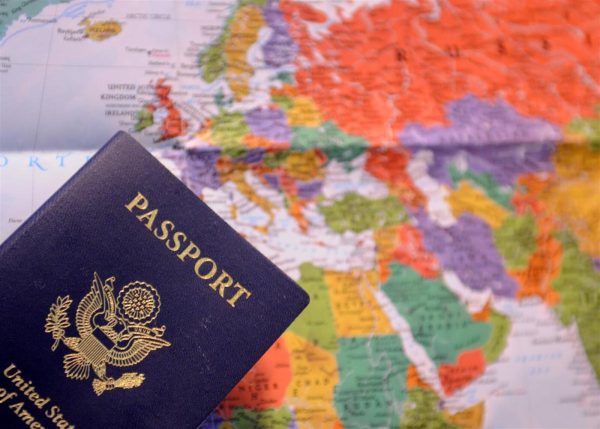Yinz Yang: Debating Obama’s Nobel Peace Prize
October 13, 2009
Herron:
Vietnamese secret police surrounded and raided the Roman Catholic Archdiocese of Hue… Herron:
Vietnamese secret police surrounded and raided the Roman Catholic Archdiocese of Hue on Feb. 19, 2007. Inside was Father Nguyen Van Ly, who the police promptly arrested and incarcerated. Father Ly was arrested for his support of Bloc 8406, an organization that advocates democratic reforms within Vietnam. For his dissidence, Father Ly was sentenced to eight years in prison. He has already served 15 years of imprisonment for similar crimes.
Despite Nguyen Van Ly’s courage in the face of tyranny, despite his willingness to sacrifice his freedom and despite his unyielding loyalty to his principles, the Nobel Peace Prize committee again overlooked his efforts. This time, his struggles weren’t overshadowed by Al Gore, as they were two years ago, but by President Barack Obama.
Obama was presented the award “for his extraordinary efforts to strengthen international diplomacy and cooperation between peoples.” It appears that the standard for excellence, in the eyes of the Nobel committee, is no longer achievement, but a politician’s promise. Simple aspiration has apparently become the necessary benchmark. In essence, the Nobel Peace Prize is the global “Certificate of Participation.” The Nobel committee has fallen for the same illusion as many Americans — if Obama says something will be done, then surely, it will be.
The Nobel Peace Prize committee’s decisions have rarely escaped criticism. Yet even when the award went to its most controversial recipients — most notably Henry Kissinger and Yassir Arafat — those recipients at least had some sort of tangible achievement backing up the recognition. Kissinger negotiated the Vietnam cease-fire. Arafat, who was often viewed as a terrorist, at least agreed to the Oslo Accords in 1993.
I’ve come to believe, perhaps foolishly, that the Peace Prize should be attributed to those who have shown some sort of courage and a willingness to sacrifice. This means knowing that what you risk is monumentally greater than what you stand to benefit. Carl von Ossietzky, Martin Luther King Jr., Mother Teresa, the Dalai Lama, Aung San Suu Kyi, Nelson Mandela and others fall under this category. Other winners exerted time and effort to achieve the goal of a better world, often at the cost of their own well-being.
Here’s what is frustrating about Obama’s Nobel: The accomplishment that the Nobel committee has chosen to admire was a primary reason he was elected president. Americans saw his willingness to engage the international community as refreshing and symbolic of his mantra of change. His “efforts to strengthen international diplomacy and cooperation between peoples” didn’t require any sort of sacrifice or moral courage. Those efforts got him elected president.
Might Obama’s policies and efforts to unify the world be successful? Perhaps. But perhaps not. And if not, what happens? The fact that this question can be asked shows that the award was premature. If there’s such a grand expectation among the Nobel committee that Obama will strengthen international diplomacy, then why not wait until he has actually done so? If the committee does not hold such expectations, then the award is simply a hollow gesture.
Criticizing Obama for winning the award is misguided and incorrect. It is the Nobel Peace Prize committee that should receive the flak. Some have suggested that the prize was a political rebuke of former President George W. Bush. I am not prepared to be so cynical. Yet it is difficult to resist believing that, at the very least, this award was given as a sign of unified approval from Europe that Obama’s vision of the world is in line with theirs. The Nobel Peace Prize was meant to recognize genuine peacemaking. Presenting it symbolically, or politically, is wrong and mischievous.
Meanwhile, Father Ly still sits in a Vietnamese prison, while Obama sits in the White House. Obama declared that he will not seek to promote democracy outside of the United States. Father Ly has intrepidly fought for it and will continue to do so.
Commentators might argue that Obama’s accomplishments are deserving of the Nobel Peace Prize. But we must ask: Is he the most deserving? The answer, at least this year, is an unqualified “no.”
Like the American electorate, the Nobel Peace Prize committee has been enchanted by Obama’s promise of hope. They’ve seen the future Obama world, and it is good. Obama, meanwhile, has been rewarded for something not yet accomplished. Many of us are left scratching our heads, wondering, just as Paul of Tarsus did, “Who hopes for what he already has?”
E-mail Mason at [email protected]
Hinton:
It was announced last Friday that President Barack Obama is to be awarded the Nobel Peace Prize. Pundits, analysts and conservatives everywhere responded by frenetically penning responses to Obama’s victory.
In the wake of an editorial whirlwind, we are left with the impression that Obama somehow robbed peacemakers everywhere. Why exactly the 44th president of the United States is unfit for his award remains unclear.
Some suggest that Obama has not actually caused enough peace, joking that if you can win for something you will do in the future, then maybe we should all be given awards on good faith. Others argue that Obama should not be rewarded for, as they perceive it, failing to fix the U.S. economy, cut a clear path through the health care crisis or put a stop to the wars in Iraq and Afghanistan. Finally, there is the group of detractors who just see this Nobellian move as another unfair result of Obama-philia, our president’s international cult of celebrity..
All of these objections are founded on two important mistakes. The first is the idea that the Nobel Prize for Peace is usually awarded for completing some determinate goal. The second is the notion that tangible, visible effects are more meritorious than theoretical ones. As we shall see, these two bad propositions are actually opposite sides of the same coin.
The Peace Prize stands apart from the other Nobel awards in that it is not awarded upon the finishing of a project. Economists win prizes for models, authors for books, chemists and doctors for discoveries and medicines.
The Peace Prize is awarded neither for peace formulae and compositions, nor inventions. Nobel Peace laureates are not rewarded for getting to peace, but merely for reaching for it and doing good in the process. When they compare Obama’s winning to getting a Pulitzer for an unwritten novel, detractors miss this difference between the oddball Peace Prize and its Nobel kin.
This does not defend Obama from the criticism that he has not taken enough steps toward peace. No one expects that Peace laureates secure everlasting world harmony. The standard, though, should be actually taking decisive action toward it. Al Gore did not fix the climate, but he got people to take the issue seriously. The International Physicians for the Prevention of Nuclear War did not eliminate nuclear weapons, but they helped turn public opinion against them. The U.N. has failed to eliminate strife and unite the world but has tirelessly worked to promote these agendas.
Although they have not reached the endpoint of what they set out to do, all past winners have made impressive strides. The objection is that Obama has not done this.
Peace is an imprecise yardstick. Peace is often found exactly where things do not happen, where people do not die, where missiles are not fired, etc. Peace does not break out and therefore it becomes hard to pin down who or what actually “causes” peace. When peace does spectacularly and quickly occur, it is questionable if it should be rewarded at all. The last great peace occurrence rode on the back of 37 megatons of energy. If ending wars is the metric by which we dole out the Peace Prize, Harry Truman wins every year.
Of course, this is insensitive.
It does highlight that the Peace Prize cannot necessarily privilege proactive and observable solutions to war. Similarly, hunger, poverty and injustice might not be cured with visible or kinetic solutions. Heavy-handedness and the genuine spirit of peace rarely coincide. Although peace without works is indeed dead, giving orphans a family, refugees homes and the Third World food does not ensure we are moving toward a better, happier world unless it is accompanied by changes in the schema whereby we understand these issues.
Once we acknowledge that contributions to peace might be equally worthy whether they are objective and physical or theoretical and intelligible, we must ask if Obama has contributed significantly in this way. Has Obama effected any radical shift in the international ethos?
Undoubtedly, he has.
In his rebranding of the United States from the uneducated cowboy of the world to the cool, progressive nation that’s trying to get to the vanguard, Obama has done just as much for peace as any past laureate. When one of the world’s greatest superpowers is reviled as a bully and its mascot-cum-leader projects an intellectual backsliding, the international climate cannot possibly be stable.
A keystone with cracks in it makes the whole arch nervous.
However, Obama shows the global audience what a face-lift can do to mollify discontents. The hope for which Obama won the Peace Prize is not the vague hope that the world can be better but the very determinate hope that a world in which the United States is not a backwater brute is still a coherent world.
President George W. Bush did not directly attack peace by going to war. He did it by convincing the international community that the only two alternatives were to be trampled under a red-white-and-blue flag or to destroy the United States. Of course, the latter was not an option.
The change that we can really believe in and the change that won Obama the Nobel Prize for Peace is the shift in international perception to one that believes the United States can change. Obama’s great humanitarianism is his image by which the United States starts to look human.
E-mail Erik at [email protected]







